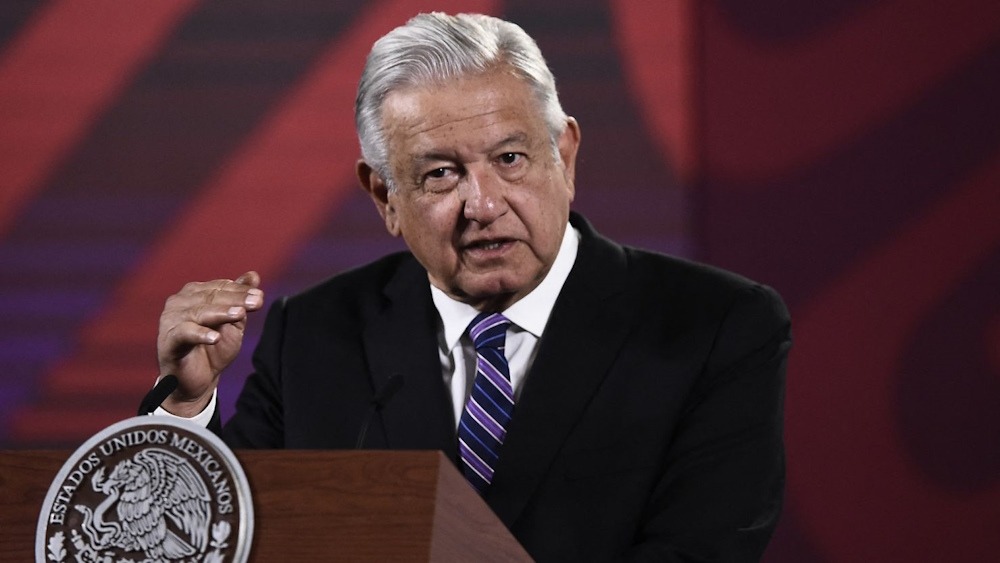Mexico teeters on the brink of authoritarian rule

Several of the world’s most infamous dictatorships emerged amidst turbulent social unrest, such as the case of Cuba in 1959 or Iran in 1979. However, numerous countries transformed into police states as elected leaders exploited their popularity to undermine the rights of political minorities and dismantle institutional checks that were put in place to curb executive power. Venezuela, Bolivia, and Nicaragua fall into this category.
Given this historical context, Mexicans who aspire to live in a diverse and democratic nation are feeling uneasy about the upcoming month of September.
Claudia Sheinbaum, the candidate from President Andrés Manuel López Obrador’s Morena party, emerged victorious in the presidential election held on June 2. Morena also secured majorities in both chambers of Congress. However, despite the new legislators taking their oath of office on Sept. 1, Ms. Sheinbaum will not be sworn in until Oct. 1.
This could potentially grant Mr. López Obrador a level of power that he has not yet experienced during his presidency. If the National Electoral Institute decides on Aug. 23 that Morena and its allies have achieved a significant majority in the lower house, and if the electoral tribunal supports this decision, the president intends to address the small deficit of votes needed for a Morena supermajority in the Senate through negotiation. In such a scenario, he has proposed a series of substantial constitutional amendments to be passed.
How extreme? Let’s put it this way: If AMLO, as the president is known, depends on Ms. Sheinbaum from the hard-left to address these issues once in office, there is a possibility that they may not be accomplished as intended. She is determined to achieve her goals, and disrupting legal certainty and the separation of powers, as Mr. López Obrador’s reforms would do, may not be a priority for her at the moment.
AMLO, however, is limited by his term and holds resentment towards independent institutions that prevented him from consolidating power. As he departs, he’s making a final attempt to challenge those who advocate for the rule of law, often referred to as “neoliberals”. According to sociologist Armando Bartra, the package of reforms bears resemblance to the constitutional changes that Hugo Chávez advocated for in Venezuela.
If he is successful, Mexico will revert back to a one-party state, reminiscent of the most oppressive era under the 71-year rule of the Institutional Revolutionary Party—except this time, the situation will be even more dire. Things have the potential to become significantly more chaotic given the influence wielded by Mexican cartels.
Mexico’s manufacturing economy sets it apart from Venezuela, showcasing its diversification. However, it is not immune to a potential seizure of power. Mr. López Obrador has already assigned important positions to the army brass in operations, customs at ports and airports, and infrastructure projects, which has raised concerns about potential corruption. In addition, he gave the armed forces the authority to police at the federal level, essentially transforming law enforcement into a more militarized entity.
One of the most concerning aspects of the president’s 20 proposed constitutional amendments is the significant changes being suggested for the judiciary. It would result in the removal of all 7,293 sitting jurists in the country, including 11 Supreme Court justices and all circuit court, federal district, and state judges.
In order to replace the Supreme Court, the legislature and executive branch, which are controlled by Morena, would put forward a list of candidates. It’s not unreasonable to speculate that there may be a political litmus test required. Or that academic credentials, writing for scholarly journals, and judicial experience would be of little importance, if considered at all. Lawyers and judges who see the job on the nation’s highest court as a duty to uphold the law are unlikely to put themselves forward for consideration. According to AMLO, lawyers across the country have the opportunity to nominate themselves for lower court vacancies.
Popular vote would determine the election of nominees from the Supreme Court and beyond. Many voters, lacking expertise in law or the means to thoroughly research the qualifications of numerous candidates, may find it challenging to make well-informed decisions. Turnout is expected to be low and the vote may be influenced by various single-issue groups or lobbyists, including organized crime, government officials, or entrepreneurs. Special interests will employ Mexico’s bench. Allowing the government to imprison citizens suspected of tax fraud would eliminate the need for due process.
One of AMLO’s proposals aims to eliminate a significant number of seats in both the lower house of Congress and the Senate, which are currently filled through proportional representation. This would effectively silence minority parties, as they currently have the ability to challenge the constitutionality of laws with at least one-third of votes. Without the possibility of re-election, the motivation for responsible stewardship would diminish.
The reforms aim to eliminate the independence of the nation’s election oversight body. It would fall under the executive branch, just like the government agencies responsible for regulating competition in the telecom, energy, and broader market. This action would go against Mexico’s commitments under the U.S.-Mexico-Canada Agreement and could potentially deter investment.
If the proposed reforms are implemented, it is likely that the nation, which heavily depends on increased integration with the global economy, will experience a setback. And with it, the aspirations of the Mexican people for a peaceful, free, and prosperous life.










